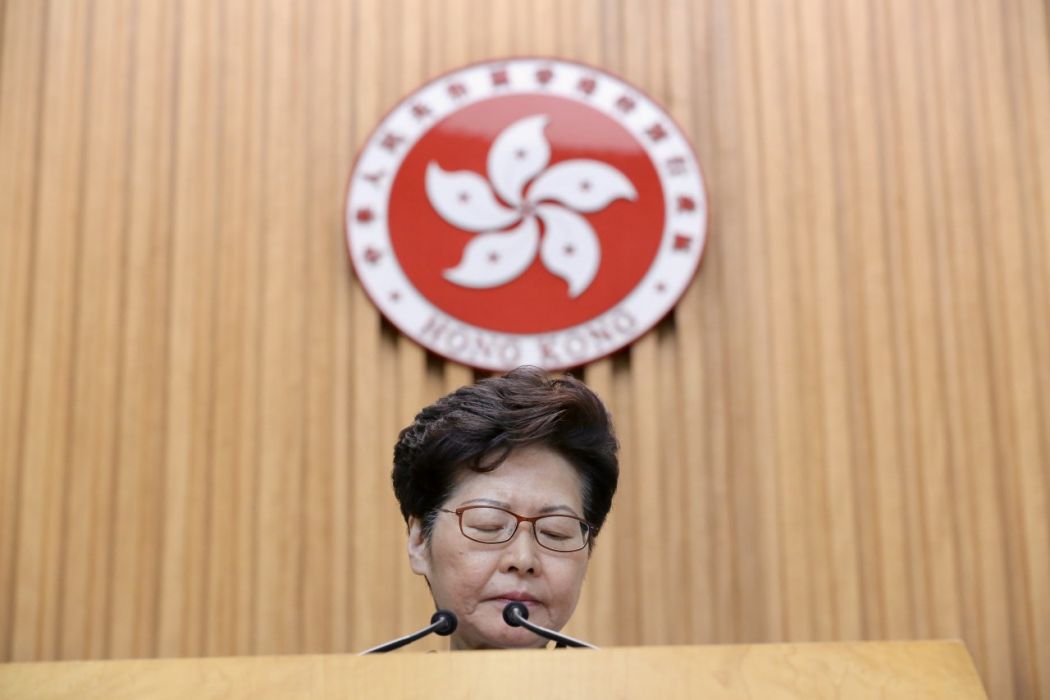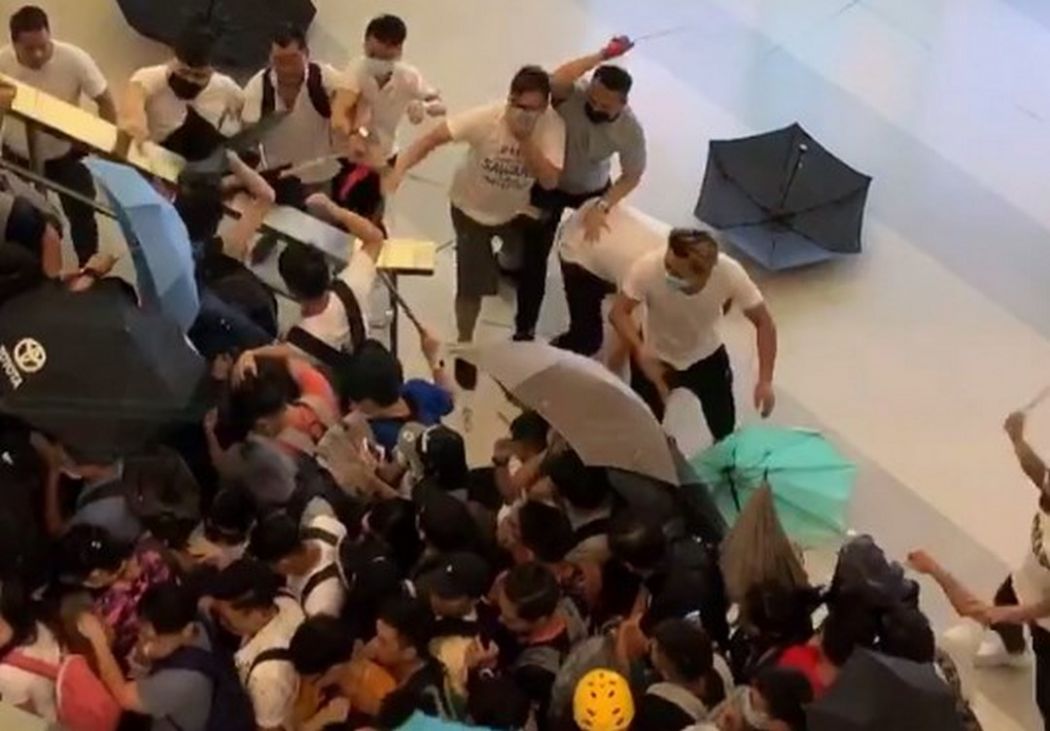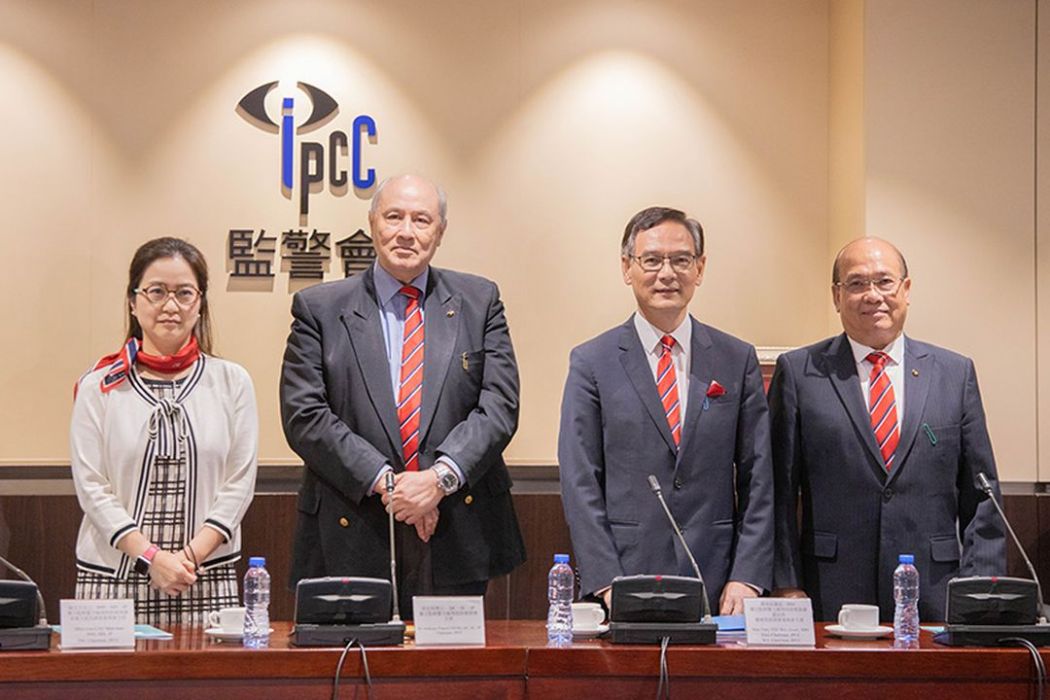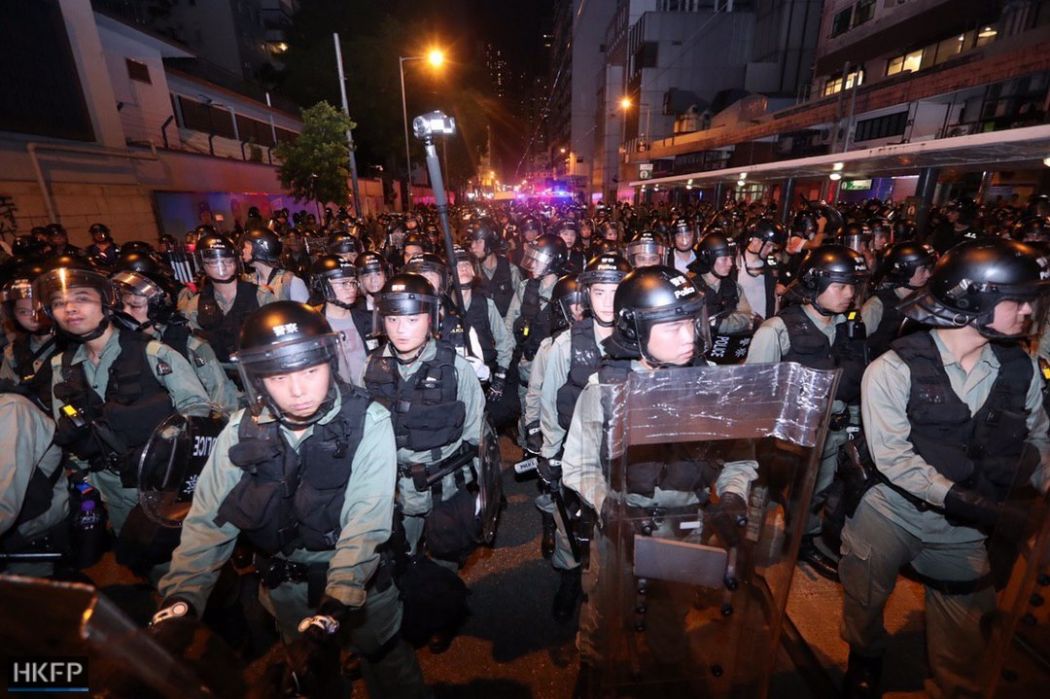On June 12, Chief Executive Carrie Lam spoke to reporters about “an issue of major public concern,” which had led her to set up an independent inquiry with wide-reaching powers.
“Given the severity of this particular incident… going for a statutory commission with all the powers that I have mentioned is an appropriate approach,” Lam said.

The year was 2018, and Lam was speaking about the Hung Hom MTR station. Her announcement of a judge-led Commission of Inquiry (CoI) came barely two weeks after the media uncovered a corner-cutting scandal: construction subcontractors working on the railway station had allegedly cut short some steel rebars.
Ironically, what Lam had so readily agreed to in 2018 became a political taboo for her just one year later.
The next June 12 saw a radically transformed Hong Kong, as pro-democracy protesters clashed with riot police outside government headquarters – the first of many such conflicts to come. By the end of that month, millions of protesters demanded with one voice that the Lam administration set up an independent inquiry.
Instead of looking into poorly-built metro stations, this time the CoI would focus on something more incendiary: alleged abuse of power and unlawful violence by the police.
But by then, Lam’s tune had changed. It was “inappropriate” to set up an independent inquiry, she said, as there were established mechanisms such as the Independent Police Complaints Council (IPCC) to handle complaints against law enforcement.

As the historic protest movement crossed its half-year mark, Lam and her ministers have been questioned repeatedly about setting up a statutory commission, and each time the answer stayed the same.
This was despite an ever-growing chorus of prominent figures in Hong Kong advocating for it, including judges, business leaders, diplomats, religious leaders, local and overseas politicians, and heavyweights from both pro-democracy and pro-Beijing camps.
Most commentators agree that, of the five demands of the protest movement, the call for a statutory commission would be the easiest for Lam to fulfil. So why was the Hong Kong government so unwilling to concede? And why were protesters unwilling to accept any of the substitute options Lam offered?
Who watches the watchers
Since day one of the movement, Hong Kong’s protesters have harshly condemned the police for what they saw as brutality and abuse of power. Early incidents such as the siege of CITIC Tower, where large crowds were trapped by police firing tear gas, already provoked widespread public outrage.
But the public’s animosity against the police took on a new dimension after the Yuen Long attacks on July 21, and the shocking incident solidified the public opinion in favour of an independent inquiry.

On that evening, a stick-wielding mob indiscriminately attacked protesters, journalists and civilians at Yuen Long MTR station. Aside from the mob-related assailants, the public also accused the police of collusion: victims decried the 39-minute delay before the arrival of police, closure of police stations and the poor response of the 999 emergency line, as well as footage of a commander chatting with the men who appeared to be part of the mob.
According to a survey conducted by the Chinese University of Hong Kong, 22.5 per cent of respondents gave zero marks to the police force in late June – already a substantially low approval rating. But that figure shot up to 42.7 per cent in early August, representing the most dramatic loss of public goodwill by the force over the past six months.
Slogans heard at protests include ever more creative insults towards law enforcement, from “corrupt cops, may your whole family die” to “good sons don’t become cops, those who do are jerks.”
As the urgency of opposing the extradition bill faded, many protesters told the media that the police have instead become their main target of ire, and that they would rank an independent inquiry at the top of their list of demands.

A Commission of Inquiry was considered to be superior for two reasons: first, it has its basis in Commissions of Inquiry Ordinance, which grants it legal authority and gives it tribunal-like powers of summoning witnesses and ordering the disclosure of evidence.
In terms of perception, it was also the closest thing to public accountability under Hong Kong’s non-democratic system, as a statutory commission would be led by a judge – usually one selected for their reputation of impartiality and fairness.
IPCC ‘not enough’
While a statutory commission is rare in Hong Kong, it is not unheard of: aside from the Hung Hom MTR scandal, the chief executive also set up inquiries for the Lamma ferry collision in 2012 and the “lead in water” contamination incident in 2015.
However, the line taken by Carrie Lam’s administration was that the police force could not be investigated in the same way. On July 4 the Independent Police Complaints Council (IPCC) volunteered to begin a “study” into the protests, and since then, Lam has used the watchdog group as a defence for not having a CoI.

The IPCC has long been criticised for having minimal investigative powers – a criticism that its chair Anthony Neoh in December said he agreed with. Under normal circumstances, the IPCC reviews materials submitted by the police internal complaints department, but has no power to summon witnesses on its own.
During the Mong Kok unrest in 2016, a Ming Pao journalist was seen being pushed down by officers with shields, then kicked and beaten with batons for around 15 seconds. Despite the incident being captured on video, the journalist was told by the Complaints Against Police Office (CAPO) – the police internal complaints unit – that his case was “not pursuable” and “not fully substantiated.”
When he took his case to the IPCC, the case languished in limbo over three years, and the journalist ultimately deciding to directly sue the police chief in court.
Critics have also noted that many of the IPCC members were perceived to be pro-Beijing or pro-establishment. While three lawmakers are part of the IPCC, none of them hail from the pro-democracy camp, and prominent critics of the administration such as legal scholar Eric Cheung are no longer affiliated.

On December 11, five overseas experts hired by the IPCC to assist its study also left, saying there was a “crucial shortfall” in the powers, capacity and independent investigative capability of the watchdog group.
Citing anonymous sources, local media reported that the five experts had tried to get an advance copy of the IPCC’s interim report, which was written with their help and input. However, they were told that they could only read it when it is about to be published.
IPCC’s leaders denied that it was a breakup, but the move was described by democrats as a “slap in the face” for the Carrie Lam administration and a further blow to the IPCC’s credibility.
Some protesters have taken to the courts to further challenge the IPCC: activist Hendrick Lui argued that the watchdog group’s statutory ambit does not even allow them to conduct a study in the first place. His judicial review case was granted leave by the court on December 20.

All eyes are now on the IPCC to see how they fare in their report, but early indications suggest it will disappoint protesters: Neoh said the document will only focus on events leading up to July 1, and would look at the issue macroscopically instead of assigning blame to individuals.
The elusive sixth demand
It is no secret that the Hong Kong Police Force has vigorously rejected an independent inquiry into their officers. In August, Carrie Lam was heard saying in a leaked recording that she could not back a statutory commission because the police were “very much opposed” to it.
Commissioner of Police Chris Tang and his predecessor Stephen Lo have said as much in public, with Tang saying it would be an “injustice” if a CoI was set up to target only police.
Carrie Lam went so far as to propose an “independent review committee,” which she said was comparable to the efforts to investigate the 2011 Tottenham Riots in the UK. However, such a “committee” had no legal status or powers, and was immediately dismissed by protesters as a counterfeit.

On October 1, police shot a student protester with live ammunition, fueling further antipathy and accusations of brutality. Some protesters proposed a “sixth demand” of disbanding the police force altogether, though the consensus on this new addition was not as strong.
While some believed that the police should be abolished entirely, others argued that it was better to reform them – returning to a model of community policing instead of paramilitary-style tactics.
Asked about this new demand by protesters, Carrie Lam in October said that the police were needed to deal with law and order in Hong Kong.
In a candid moment – perhaps more candid than her spin doctors intended – Lam said the calls for disbanding the police left her “perplexed.”
Hong Kong Free Press relies on direct reader support. Help safeguard independent journalism and press freedom as we invest more in freelancers, overtime, safety gear & insurance during this summer’s protests. 10 ways to support us.

